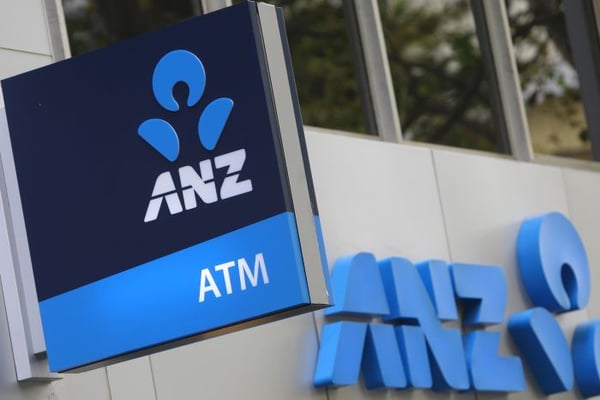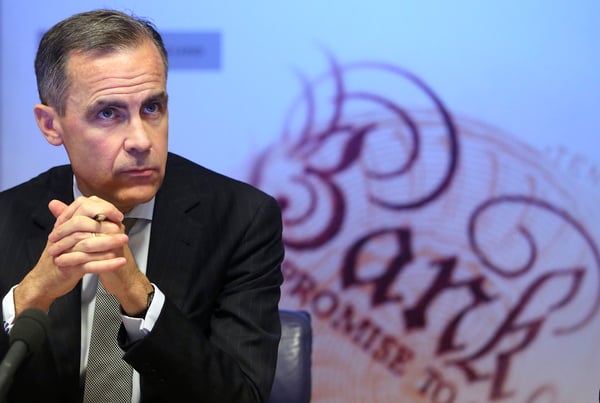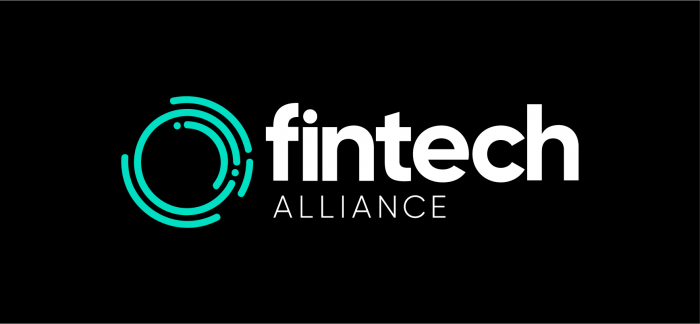Welcome to the Frictionless Finance Report, our monthly look at everything new in the world of Open Banking, FinTech, and consumer experience.
The Report is emailed to subscribers monthly. If you'd like to receive this in your inbox, you can subscribe here.
This week we cover the launch of Open Banking in Australia, how Open Banking could add £18 billion per year to the UK economy, and a renewed focus on API quality prior to the launch of PSD2.
Open Banking
We start this week with the launch of a new independent report which has stated that Oen Banking, if properly utilised, could unlock up to £18 billion a year for the British economy.
The report, titled “Consumer Priorities for open Banking” has been co-authored by Faith Reynolds and Mark Chidley within their position as Independent Consumer and Small Business Representatives for the Open Banking Implementation Entity (OBIE).
On the report, Renolds notes:
“The time is ripe for action. Consumers are desperate for services which make their lives easier and happier. Managing money is at best a distraction and at worst stressful and anxiety-inducing. Open Banking offers a golden opportunity to reimagine consumers’ relationship with financial services.
The report highlights that consumers, through tailored services, could save up to £12 billion, while small businesses could save a further £6 billion. Importantly, the report states that those in financial distress could make savings of £287 per year using Open Banking.
In the accompanying press release, the authors write:
“Open Banking could make a fundamental difference to the financial health of people and small businesses in the UK and has shown some encouraging early signs. But the industry needs help to realise the full potential of Open Banking. Our report sets out how the government, regulators and industry can work together to:
- deliver greater value for consumers;
- build a trustworthy ecosystem; and
- stimulate the market to action quicker.”
The full report can be found here, as well as the press release here, alongside further coverage in Finextra, FS Tech and Computer Weekly.

The arrival of Open Banking in the UK last year brought with it a focus on APIs that has not heretofore been seen. API quality is the bedrock on which the success of Open Banking rests, and for it to work for all consumers, they need to be stable and reliable. It is therefore crucial that discussion around API and API quality continues unabated. Scrutiny will only increase as we move closer to the PSD2 implementation date of September 14th.
Several commentaries worthy of inclusion on these pages has reached our ears over the last week, including articles from FS Tech on API quality, an interview with the Head of APIs for Deutsche Bank, the API economy, and the benefit of APIs to both banks and FinTech’s.
We kick off with an interview with Ismail Chaib, COO of Open Bank Project. The headline from this interview is that as API development continues at pace, in the near future, both banks and FinTech’s will benefit from their availability. Partnerships between the two will help to generate external opportunities for banks. While for Fintech’s, finding a great use-case and demonstrating it at hackathons and to bank’s innovation departments is key to finding a foot in the door.
On the quality of APIs, FS Tech have led with a potential issue in their deployment across European banks. Reporting on a statement from Tink, they state that while 69% of APIs across Europe were available, none were of sufficient quality to have met the required regulatory standards for integration.
“The way we look at it is that APIs are the technical enablers. APIs is what you need to use banking data outside of banking systems. And we talk about API products, which means that we bundle data to serve a specific use case,”
So said Joris Hensen, Founder, and Co-Lead of Deutsche Bank’s API Programme. In this wide-ranging interview with Rik Coeckelbergs from The Banking Scene, he espouses on Deutsche Bank having worked on Open APIs since 2015, how consumer education remains vitally important, and how Open Banking will open up markets abroad for financial service companies.
Writing on the UK Finance website, David Lee of BCS Consulting talks about the rise of platform providers using Open APIs to transform the financial service sector. Within this piece, he argues that even “core” considerations such as KYC, risk analysis and customer service can now be outsourced to platform providers. Moreover, banks are only now truly understanding their place within the digital economy following the introduction of Open Banking last year. Innovation has now become the watchword for all finance houses and partnering with third-party providers who offer platform solutions is a method for achieving this.
He writes:
“Taking this to its logical conclusion, we can imagine financial services firms composed entirely of interconnected, third-party API services. This model has huge implications for the market as a whole: new entrants can build functional operations at a fraction of the time and cost of a traditional model – and, increasingly, without needing substantial internal technical expertise.”
PSD2 and SCA
The introduction of PSD2 brings with it the introduction of Strong Customer Authentication (SCA), requiring three pieces of information for some payments. This week we have a plethora of articles on the topic, ranging from why it should be delayed to what it will mean for different institutions.

In Finextra, a study by GoCardless caught our eye this week. The research, which took place across France, Germany, the UK and Spain concluded that consumers have varying views on what is more important to them at the till – convenience or speed. While 43% of UK consumers said speed was the most important aspect, only 17% of Spanish shoppers agreed. 45% of UK consumers also stated they would be frustrated if a brand brought in additional security checks during the checkout process.
Whether banks and online merchants are suitably prepared for the introduction of SCA has also been a bone of contention this week. On one side, European payments body EPSM has called for an 18-month extension to allow further firms to prepare adequately. This has been countered by Louise Beaumont, speaking on behalf of the Open Banking Payments Working Group, TechUK, who has stated:
“My concern here is that this is the EBA potentially giving organizations that haven’t worked hard enough to get on the front foot more time. There are some advantages for those organizations who are ahead of where they need to be, who are delivering well, this is their chance to absolutely seal that advantage. For those organizations who are not where they should be, this is a real warning sign for them.”
The Future for Open Banking
As Open Banking continues to grow in size and scope, we are witnessing increasing use-cases for the technology. Two articles that we would draw your eye to are from Gavin Littlejohn, Chairman of FDATA in FinTech Magazine, and Conrad Ford of Funding Options in Banking Tech.
Littlejohn repeats the importance that data will provide to individual consumers, offering insights into their financial lives. He says:
“The customer has the right to choose the services that better meet their needs, and yes, some customers will be fearful of sharing their financial data, but on the other end of the spectrum is the knowledge that you can only get a better outcome if you know you have the capability and the assets at your disposal to be able to compare and contrast.”
Ford approaches his article from the perspective of a bank, arguing that now that Open Banking is in place, banks should make the next step and share requested customer data with trusted third-party providers. With rapidly advancing technology, aligned with the changing demographics of target audiences, small business finance is set to change drastically.
In support:
- The Financial Brand has identified Open Banking as one of the top trends in retail payments.
- MacMillan Cancer Support cite Open Banking as one way of supporting vulnerable patients undergoing cancer treatment in this illuminating blog.
- CREALOGIX have identified the top 10 trends that consumers want to use Open banking for, including; instant payments, a dashboard of different accounts, and automated spending projections.
Other news in Open Banking:
- Chair of the Treasury Select Committee on Finance, Nicky Morgan has opined that a data breach caused through the use of Open Banking could be “fatal”. More in City AM.
- New research from Clearscore suggests 73% of consumers are concerned about granting access to their data. More in Mortgage Solutions.
Open Banking Abroad Australia
There is only one place to start as we look around the globe for the top Open Banking news, and that is Australia. As most visitors to these pages will be aware, Open Banking went live in Australia from July 1st. Currently, this applies to just the four big banks, but mortgage data is set to be integrated early next year, before the other banks join next July. There has been considerable debate and opinion within the Australian press as to the merits of Open Banking. These include FinTech Business,
Australian FinTech, Financial Standard, Investor Daily, Which-50, SBS News, Mozo, IT Wire and Broker News.
 Holland
Holland
Marc Brogle of DXC has written for Holland Fintech on the introduction of Open Banking across Europe. He argues that now is the time for banks across the continent to seize the moment, take down the shutters and embrace the opportunities that Open Banking provides. He writes:
“The disruptions are opening the same window of opportunities for everyone, not just the players banks see as competitors. Instead of hiding under a shell, banks should get proactive — not only opening their customer base to FinTtechs and others, but also tapping into other banks’ customer data, gaining access to new clients and offering more innovative services.”
Canada
Since the launch by Finance Canada of a consultation into Open Banking earlier this year there has been a marked uplift in interest around Open Banking. Coverage this week can be found across a range of publications, including Policy Options, Law Times News, Canadian Underwriter and Financial Post.
Finance Criminality
The UK’s Suspicious Activity Report regime is to be boosted to the tune of £6.5m from the major banks. Money laundering and unexplained wealth has become a hot topic over recent years with repeated reports showing the UK, and particularly London, the home of dirty money.
The new funds are to be used in gathering intelligence on how money launderers and other criminals are washing their proceeds. Last year, the FCA handed out £227.3m in fines for failings in money laundering obligations.
The news comes against a backdrop of HMRC recovering more money from offshore accounts than ever before, with £560m recovered in 2018/19, up from £490m in 2017/18.
Director general of the National Economic Crime Centre, Graeme Biggar, said:
"The UK has been recognised as a world-leader in combatting economic crime, yet the activity still poses a significant threat to the country’s security and prosperity, with the financial sector a major target for criminals. Serious and organised crime is estimated to cost the UK at least £37 billion each year."
Reporting via Finextra, the FT [paywall], and on offshore accounting, also in the FT [paywall].
The BBC have reported that cyber-attacks on financial service companies has increased from 69 in 2017 to 819 in 2018.
Tech
A new report from Harvey Nash and KPMG has stated that machines will take one in five jobs in the finance sector over the last five years. Finance houses are confident however, that any lost roles will be compensated by new roles becoming available for human workers.
Future Banking
The Financial Brand considers whether the “bundling” of services similar to that done by Netflix could be the way forward for banks. They note that some challenger banks are already offering customers additional services at tiered levels of service. In the future, could we see more of this?
Governor of the Bank of England, Mark Carney has recognised the difficulty that some SMEs face in trying to get access to funding. With that in mind, and building on the roll-out of Open Banking, the bank plans to build a “data platform” to make it easier for small businesses to access funds. City AM write:
“The governor’s comments underscore a failure by banks to embrace the digital economy and invest to keep pace with the changes happening to their customers. SME owners don’t just expect their bank’s lending process to be as seamless as their personal loan applications – they also expect banks to recognise how the financial makeup of firms has changed thanks to the digital revolution. Most SME financing from banks is centred around equipment or property assets, but digital services firms have neither.”

An opinion piece from Jean-Pierre Landau, a senior research fellow at Harvard Kennedy School, writing in the FT [paywall] has suggested that central banks should launch their own digital coins. The idea is being promoted following the success of Alipay and WeChat Pay in China, allied with the disappearance of cash from many economies – including the UK. Digital currencies could also stoke competition as digital coins will make payments cheaper and easier, and can be moved across borders easily.
CNBC has a wide-ranging discussion on the future of banking, looking at the challenge posed by FinTech’s to traditional high-street banks. With Challengers such as Monzo and Revolut winning customers at breakneck speed, incumbents are reacting by launching their own digital offerings. One example is Bo, launched by RBS. The high-street banks believe that digital offerings could be a winner because customers know that they are backed by some of the biggest banks, lending them credibility.
FinTech
FinTech in the UK is flourishing. And a new report from Robert Walters states that FinTech jobs in the UK rose at a rate of 61% last year. London once again claimed the top spot for Fintech investment, taking in around 39% of all capital, compared to Berlin (21%) and Paris (18%).
When will FinTech and technology in finance become inseparable as to the point that FinTech loses its meaning? That’s the question raised by Chris Skinner in a recent article. He argues that as technology makes our finances seamless, personalised, offering services for all, and available whenever and wherever we want it, we will stop referring to FinTech as a specific genre.
This has been supported – up to a point – by new research from deVere Group which illustrates that 55% of people are now regular users of FinTech technology. Asia, Latin America and Africa are the biggest growth areas for Fintech users.
Fintech in Scotland has been given a vote of confidence from Government and stakeholders after a meeting in Edinburgh confirmed the healthy state of the sector. Digital Minister Kate Forbes confirmed that partnerships and investment would make Scotland “a top five global FinTech centre by 2020”. The event was attended by many established and new FinTech’s, including Loral Quinn of Sustainably, who recently met with Richard Branson in the US. She said:
“As technology and the traditional financial services world combine, ensuring we have the right skills to grow and compete globally is going to be crucial. The Scottish eco-system has provided a great foundation for a number of success stories, but the reality is that success in this field needs to be on a scaled-up international level.”
News via The Scotsman and Daily Business Group.
Best of the rest in FinTech
- BBVA has launched a FinTech accelerator to help participant companies in areas such as Marketing, Tech, Sales and Strategy guidance.
- Venture capital firm Andreessen Horowitz believe that the future for FinTech is strong and have made new hires in preparation for spending in the sector.
The ID Co. News
Over the last month, The ID Co. has joined a number of new Fintech groupings, designed to further promote collaboration and innovation in the sector. On these pages last month, we told you how we had joined the Financial Data Exchange (FDX) in North America. Over the last few weeks, we have added to this by also joining the Fintech Alliance, and FDATA North America.

As well as ensuring that The ID Co. stays at the forefront of thinking and innovation in the FinTech sector, the new alliances will also help to promote technology across the financial services sector. As the text above illustrates, technology is pervasive in all areas of financial services, and we aim to ensure we remain as one of the foremost FinTechs.
As always, we have sought to provide the best commentary and thinking on all areas of technology on our own blog – and we would encourage you to subscribe to the latest thinking. You can do so here.
This month, our CEO, James Varga added his thoughts on why the time it will take for Open Banking to be a regular staple of consumers’ financial diets will be much shorter than currently predicted, in Finextra. With almost 4,000 views, be sure not to miss this one!
We added a guest blog from our friend Rodney Laws on how advancements in FinTech will benefit businesses both big and small.
The future of payments is one area that we are keeping a keen eye. Advancements are being made across the sector, from biometrics, crypto, faster payments to international payments. In this new article, we ask which technology will become all-pervasive, crypto, Open banking or QR codes?
Finally, we were delighted to host the third in our series of webinars last week on how lenders can make operational savings using real-time bank data. Missed it? Don’t worry – you can watch the recording, here. We’ll be announcing our programme of webinars to take us through the summer very shortly. You’ll be able to find all you need to know on the DirectID website.








